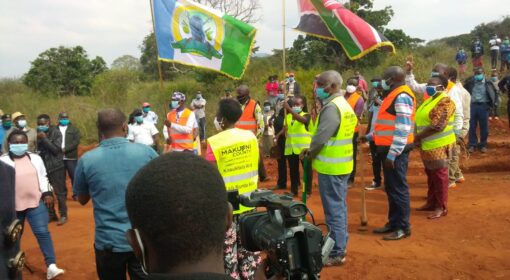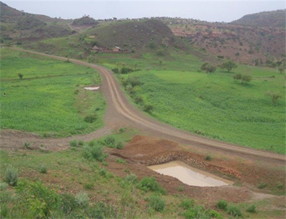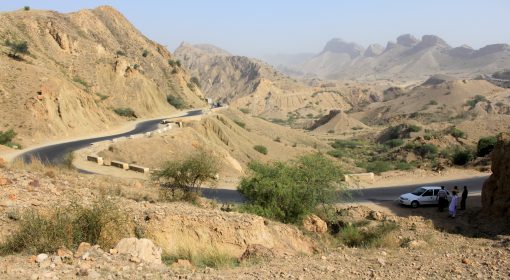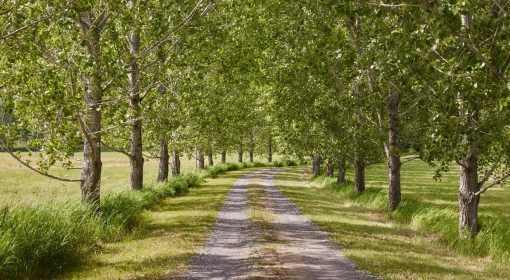by Anastasia Deligianni, Nancy Kadenyi and Theophilus Kioko
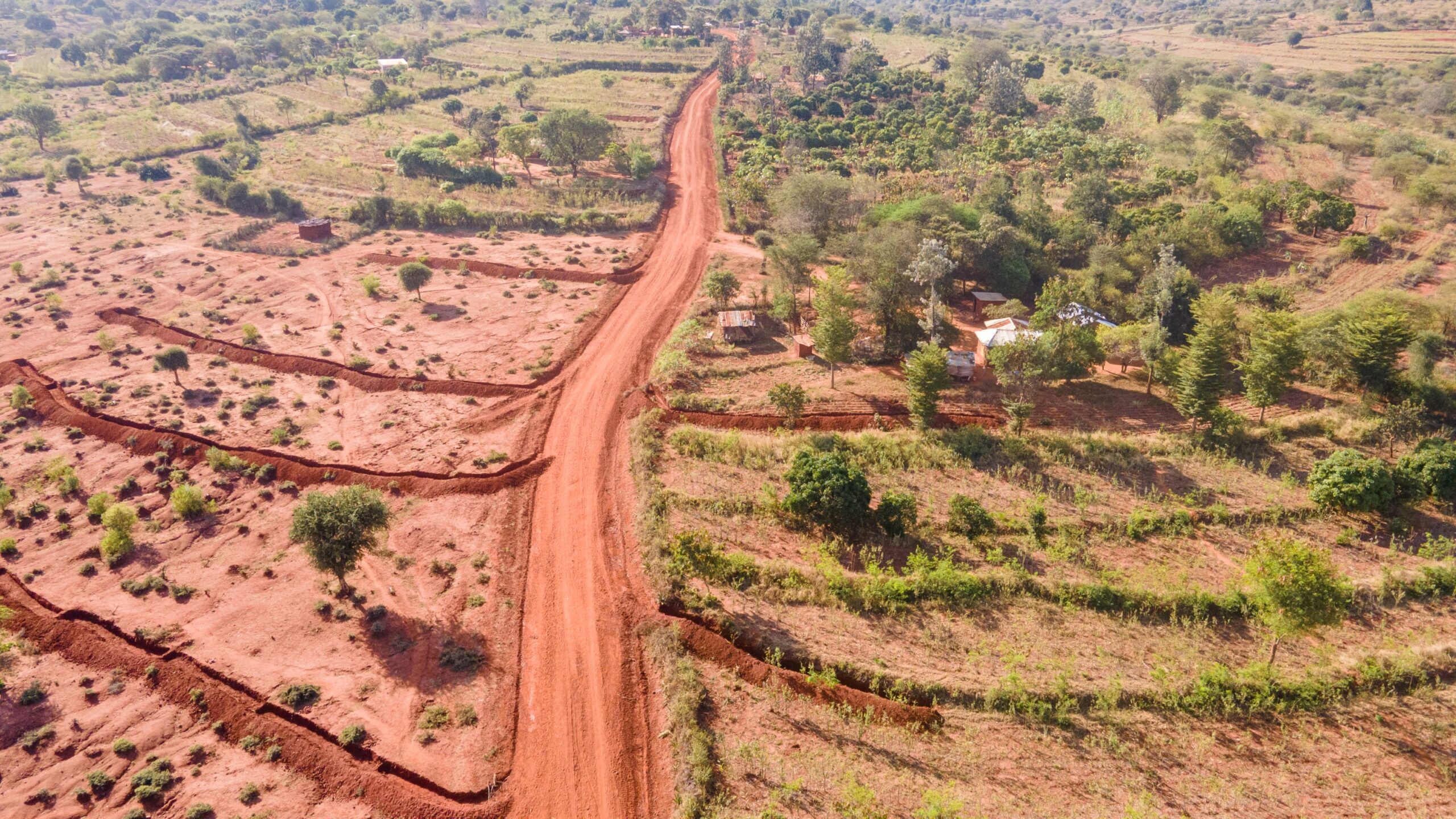
In Kenya’s Makueni County, where semi-dry lands and unpredictable rains shape everyday life, the Drain to Gain (D2G) project is providing innovative ways to transform challenges into opportunities in Kako-Waia ward, Mbooni Sub-County. Funded by the Global Resilience Partnership and led by MetaMeta and in collaboration with Government of Makueni County (GMC), this initiative is turning road runoff—typically seen as a problem—into a valuable resource for nature-based farming.
Focusing on a 3 km stretch of road, the D2G project targets farms and beneficiaries situated along the road, offering them a new way to harvest road runoff for irrigation. For farmers in Mbooni Sub-County, many of whom rely on small-scale, rain-fed agriculture, this initiative opens up new possibilities for growing crops and trees. In the Kako-Waia ward, the community has embraced the project as a key opportunity to improve livelihoods and secure food resources. This enthusiasm was evident during the project’s launch event, where local leaders, farmers, and government officials gathered to celebrate the start of a sustainable farming movement. The event featured lively discussions and community input on how the project could benefit everyone. Road runoff collection, they emphasized, not only provides irrigation for crops but also helps prevent soil erosion, recharge groundwater, stabilize soils, and even reduce road maintenance costs.
“In the previous financial year (2023/2024) budget, we had allocated over 500 Million Kenya shillings (Approximately 4 Million USD) on road management and maintenance, and most of these roads have already been eroded and damaged by the recent rains. I have come here today because I have found a solution, through approaches like D2G, we should systematically harvest all road run off for productive use in Agriculture and road maintenance ”… “we need to out scale these approaches, we must make this a reality, all over Makueni County…”HE Mutula Kilonzo Junior.
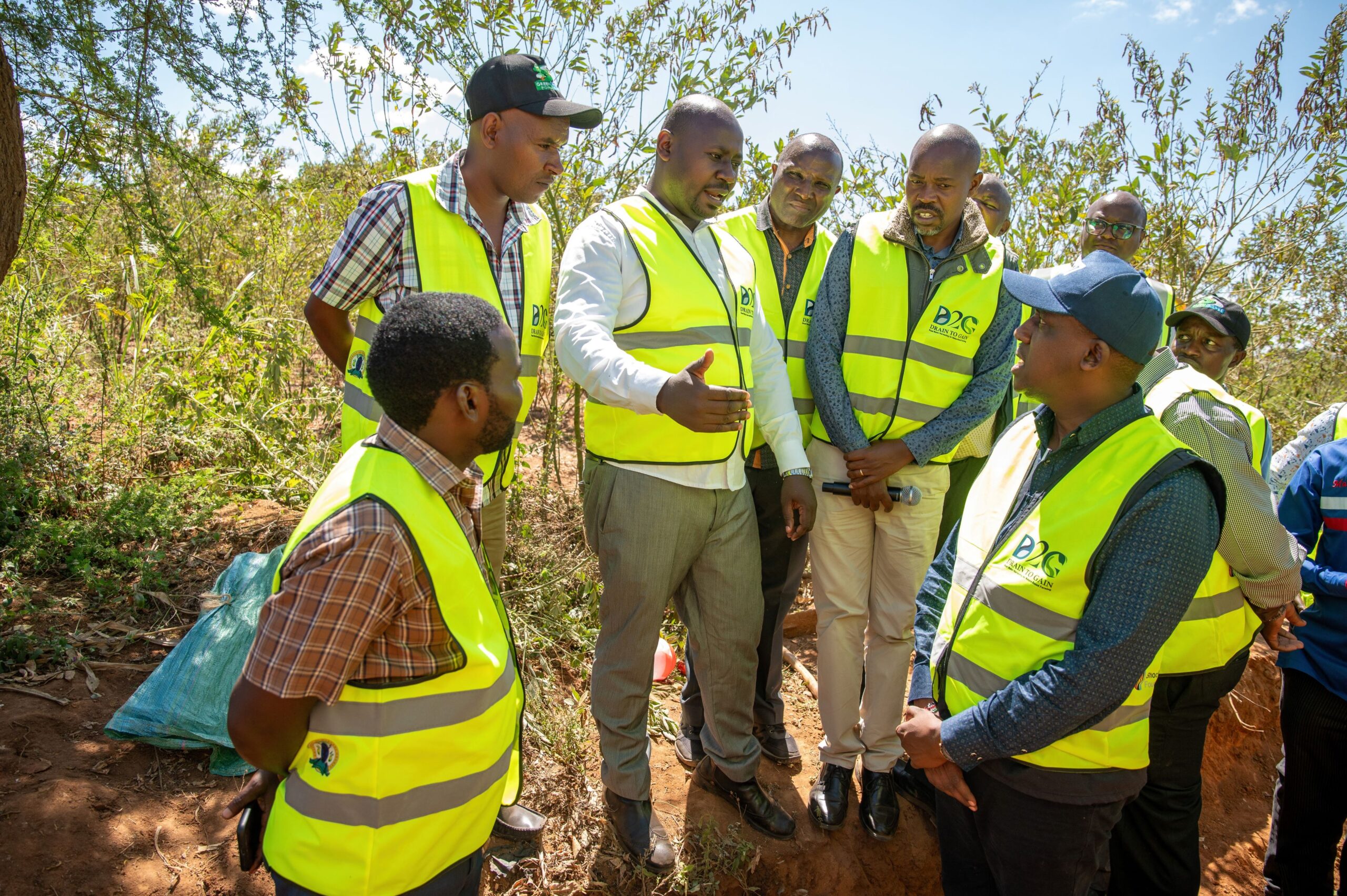
To better understand the community’s perspectives and guide the project’s development, a Knowledge, Attitudes, and Practices (KAP) study was conducted. This study, involving household surveys, focus group discussions, and key informant interviews, gathered insights on community expectations, challenges, and potential solutions. In addition, a mapathon was held to capture stories and document both obstacles and success stories across the project area, offering a detailed, interactive look into local knowledge and innovative solutions. These stories, which can be accessed through a Google Earth story presentation, add a valuable layer of community-driven insight, helping to ensure the project’s interventions are aligned with local needs and resilience goals.
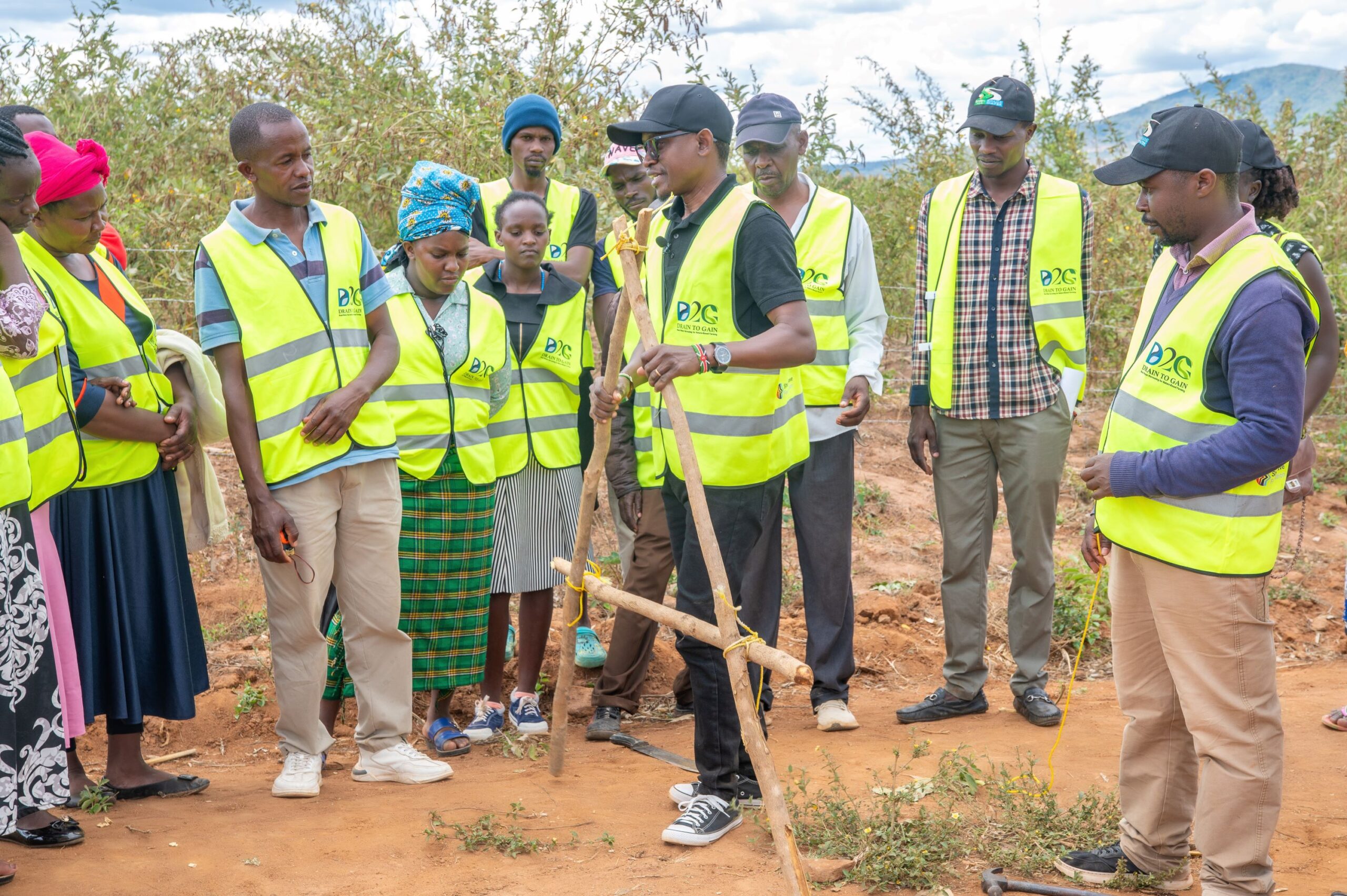
Following the KAP study, a dedicated Training of Trainers (ToTs) was conducted, bringing together local leaders, officials and community representatives to learn best practices in climate-smart farming. They dove into hands-on lessons on using road runoff to grow resilient crops, excavating mitre drains, implementing bio-gully control with vetiver grass, and cultivating trees alongside roads to create more green spaces. These trained ToTs are now sharing their knowledge with communities across five project blocks, ensuring that families directly benefit from these sustainable farming methods. These trained ToTs are now actively sharing this knowledge across five project blocks, helping families adopt these sustainable farming methods. To strengthen community ownership and engagement, the project was co-created and collaboratively designed with the trained ToTs, beneficiaries, local administration, and officials.
Already, the impact is visible: more than 4,500 meters of mitre drains have been excavated along the pilot 3 km road stretch, with 2,000 tree-planting holes prepared along roadsides and two gulleys rehabilitated. This includes plans to plant fruit trees and indigenous pastures within private farms, enriching soil and increasing food access. Local communities are actively engaged, participating in discussions to ensure the project aligns with their needs and goals while also contributing labor to the work being done on their farms.
As the Drain to Gain project nears its end in late 2024, it’s already proving to be a scalable solution with the potential to extend across all roads in Makueni County—and even Kenya as a whole. By capturing road runoff and using it to support agriculture, Drain to Gain transforms a once-problematic resource into a powerful tool for resilience and growth. Communities are seeing the tangible benefits of this approach, where water that might once have caused erosion now sustains crops and trees, leading to food security and sustainable land use. Drain to Gain empowers these communities to shape a greener, more resilient tomorrow—one where water nourishes rather than erodes, reinforcing both the land and local livelihoods.
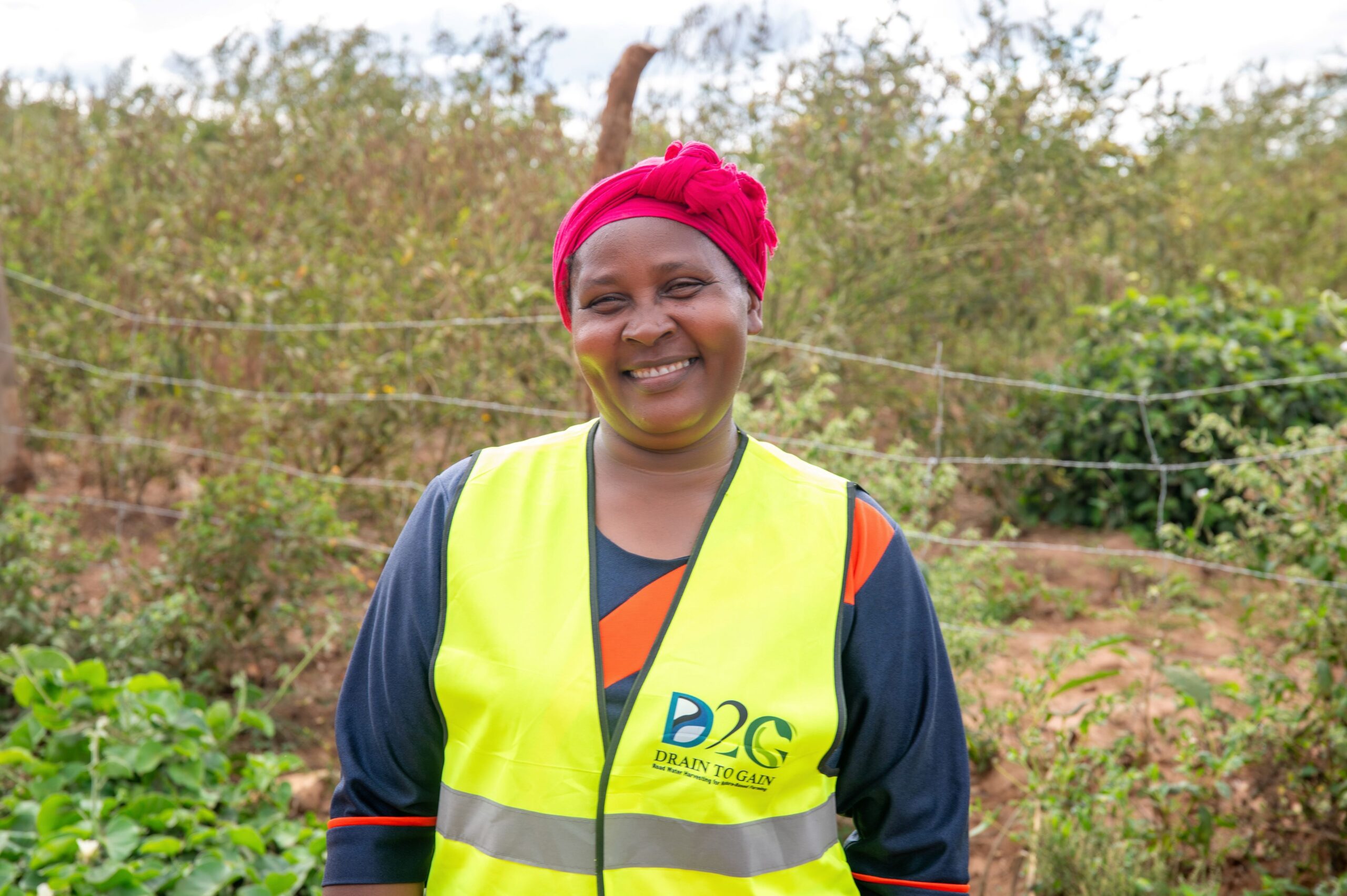
“I am excited as a resident of Kaseve village (Kako-Waia Ward); we are privileged to partner with MetaMeta who has introduced the Drain to Gain Project in the area. From Drain to Gain project, I will increase my farm production and make it more green. The road will remain in good condition for longer period and I will be able to access market easily. ”
